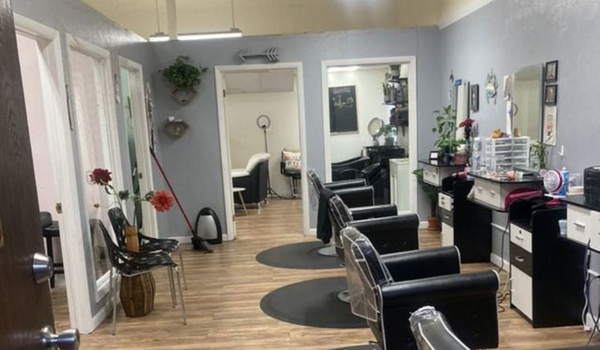
Merchant Services For Medical Offices
Financial management is one of the most important aspects of a medical office. Nowadays, most payments are paid by online transactions in the medical industry. Merchant services for medical offices provide a more secure and reliable way to process transactions. These transaction methods are used to accept payments from patients and health insurance companies through credit cards, debit cards, and other online payments.
Importance of merchant Services for medical offices
The medical field is one of the fastest-growing industries in the current scenario. They need more financial advancement in payment processing. The function of financial processing is done systematically. Online payment transactions are securely done by merchant services for medical offices faster and securely. At present, patients have so many options to make any kind of payment. Thus, medical offices should accept all payments via different methods. The payment may be through mobile wallets, internet banking, e-wallet, e-check, online transfers, and credit/ debit card transactions. Merchant services in California are a healthy solution for financial management and offering payment options. Merchant service provides a best-in-class solution to medical offices worldwide. This increases the efficiency and effectiveness of the medical office. By using merchant services technology, patients can get virtual consultations from doctors and make payments online.
Various features of merchant services for medical offices
The merchant services for medical offices not only work for payment transactions but also provide other services to the medical offices. Will see some facilities provided by merchant services in the medical field.
- Patient Portal Software: Patient details are maintained in the patient portal software. It is an online application where patients can interact with doctors to proceed with their medical check-ups, treatments, and other medical services. It also includes the patient’s previous treatment history, health care insurance details, etc.
- EHR: EHR (Electronic Health Record) is nothing but a digital version of a patient’s paper medical records. Here patient’s health information is recorded in a digital format. The EHR includes the patient’s demographic information, medical history, signs and symptoms of disease, lab reports, and so on. It’s also used to open communication between the patients and the doctors. Using these records, any doctor can treat the patient without discussing it with the previous provider. While compared to paper records, it’s more accurate and secure.
- Medical Management Software: Medical management software is mainly used for administrative purposes like practice scheduling, medical billing, and patient engagement. It performs the task fast, accurately, and securely.
- Electronic Payment Method: Once the service is received by the patient from the providers, they make their payments to medical offices through various electronic payment methods via credit cards, debit cards, and other health care insurance cards. These payments are securely done by merchant service providers.
Multi-payment processing of merchant services for medical offices
Medical payment processing is very important for all healthcare providers to accept payments from patients. In the traditional method, patient payments were made through paper checks or cash. But nowadays, there are so many possible ways of payment processing of merchant services for medical offices.
- Retail Credit Card Processing: It’s a common medical payment method. Patients can pay their medical payments easily by using their credit cards, and debit cards securely. In this mode of payment, high levels of data protection are maintained to avoid the risk of credit & debit card fraud and data leakage of patient information.
- Automated Clearing House (ACH): This payment method is used in merchant services for medical offices to process electronic payments. This payment can be made directly from one bank to another without needing any checks or credit and debit cards. The automated clearing house is less expensive when compared to other payment methods. This can be highly secure with the multi-level encryption process. This is very effective for making recurring payments.
- App Payments: Mobile applications or various apps are available to make payments to medical offices by merchant services. It’s the most convenient method of payment through smartphones. They should ensure that the patient is aware of the payment app and should know how to use it for payment processing. The apps should be password protected and not shared with anyone, so payment will be more secure.
- Health Insurance Cards: Some merchant service providers allow verification of the patient's insurance coverage and process the insurance claims electronically. In this payment method, medical offices verify the electronic insurance card, patient coverage details, and claim status. Then the payment processing proceeded to the next level.
Role of digital payments in the medical industry
The fastest processing of digital payment reduces manual processes and minimizes the timing for both medical offices and patients. After covid-19 pandemic, social distancing became the norm, many people are scared of visiting hospitals and clinics. The alternate way of getting a consultation from the provider is online and making payments the same way. Many medical offices and providers adopt digital modes of payment to minimize the risk of the spread of the virus or disease.
How the payment processing is done by merchant services for medical offices
The payment processing done by merchant services for medical offices happens in many steps,
- The medical offices should have a merchant account with a payment processor which is used to accept electronic payment.
- When the patient pays their payment for their service by using credit/debit, the transaction is processed through the payment gateway.
- Once the transaction is received, the payment processor verifies the card details.
- If the transaction is approved, the amount is sent to the medical office’s merchant account.
- The medical offices access the funds through their merchant account and transfer the amount to their business account.
In addition to payment processing, medical offices should follow HIPPA regulations while handling patient information.
Key benefits of merchant services for medical offices
Merchant services for medical offices can provide so many benefits for their growth.
- Flexible Financial: Patients can pay their payments in flexible ways such as credit/debit cards, online payments, and other health insurance cards. It will reduce the risk of handling the cash in hand.
- Reduced Risk of Fraud: Merchant services for medical offices provide secure online transactions and protect patient information. During an online transaction, data is protected with passwords. So, the risk of fraudulent payment can be reduced.
- Ease of Billing: In the medical billing field, the process of paperwork may take longer due to manual processes. With the digital mode of payments, the billing process becomes more reliable and easier.
- Timely Payments: The settlement of patient payments occurs promptly. Digital payment is easy to calculate and submit the bill information quickly.
- Revenue Increment: Merchant services for medical offices allow all types of digital payments from their patients. Due to that, the revenue of the medical field will increase and make it easy for patients to pay for their services.
- Business Proficiency Improvement: Manual work is minimized because of the digital mode of transaction. Therefore, human errors are nil. It provides better customer service to the patients and also the business process will be simplified.
Conclusion
Medical payment processing is a critical part of medical offices. Merchant services for medical offices provide the best solution for better payment processing. If medical offices need timely and accurate bill payments, they should have an efficient system for payment processing. Merchant services play a vital role in the medical field. It also involves the process of gathering patient information, verifying the insurance details, and processing the claim for further bill payment. Not only that, all the transactions are processed securely and faster.







